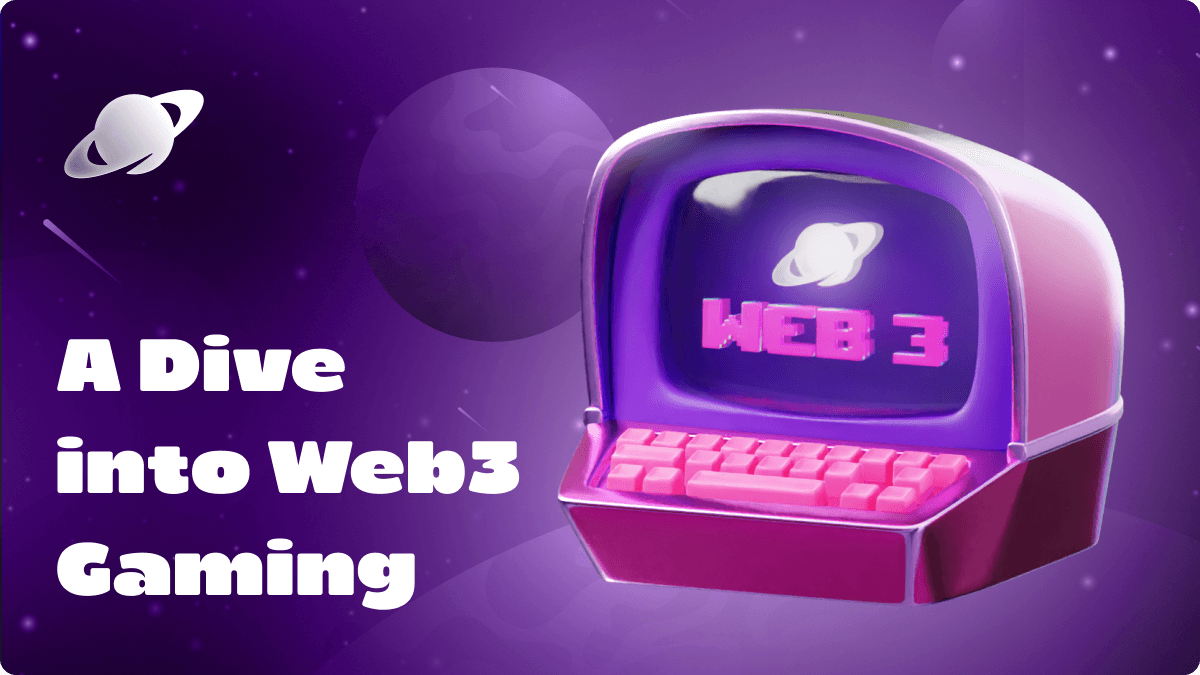Play Games and Earn LUCK.

Play Games and Earn LUCK.


Web3 games have had a big effect on the gaming industry over the past few years. While the old ones continue to dominate the charts, the arrival of blockchain games marks the start of a new era with new ideas, innovation and opportunities for players and developers alike.
Fueled by blockchain technology, Web3 games empower creators to craft novel gameplay mechanics and experiences. This has led to a surge in blockchain-based RPGs, sports games, and collectible card games (CCGs). The impact of Web3 gaming is undeniable, and its popularity is poised for continued growth.
Based on what the game needs, the game's developers will decide which blockchain gaming network to use. When it comes to gaming, each system has its own pros and cons. In this blog post, we'll explore some of the best chains for Web3 gaming that have been great for developers, driving this revolution.

We examined statistics to determine the most popular blockchains according to the latest data. BNB, Ethereum, Polygon, and Solana are among the top contenders, with nearly 10% of projects utilizing each of them. BNB Chain leads the pack, accounting for 12% of completed projects.
The BNB network supports the BNB Smart Chain, which is a well-known Web3 platform for decentralized applications (DApps) and decentralized finance (DeFi) projects. One of the biggest cryptocurrency companies, Binance, released the Binance Smart Chain in 2020.
BNB Chain offers some of the best Web3 games in the industry, with high-quality graphics and engaging gameplay. From action-packed adventure games to strategy games, there is something for every type of gamer. Whether you're looking for a fun way to pass the time or a chance to win big, BNB Chain has you covered with several top NFT games in the world of blockchain games. The BNB Chain blockchain stands out than the rest with its popularity and traction, with most of its games home to an active player-base and more coming out every day.
Ethereum and Polygon hold the second position, with 11% of blockchain projects utilizing their networks.
Ethereum served as the foundation for some of the most popular Web3 games, such as CryptoKitties, Gods Unchained, and Axie Infinity. Ethereum's smart contract capabilities also enable the creation of tokens that possess unique functionalities not found in other tokens, facilitating the development of more intricate game mechanics.
Ethereum blockchain games are quickly becoming some of the most popular and engaging forms of decentralized gaming on the market. With its smart contract functionality, players can trade, collect and earn real value through their in-game activities. Some of the top Ethereum blockchain games include the likes of GAM3 Awards Game of the Year winner, Big Time. These games offer unique experiences, stunning graphics and compelling gameplay that make them must-plays for anyone interested in decentralized gaming. With the growth of Ethereum and the blockchain gaming industry, it's only a matter of time before we see even more exciting and innovative games in the future.
Polygon is a fast and efficient platform for decentralized gaming. With its low fees and high transaction speeds, it allows for seamless and lag-free gaming experiences for players. In addition, Polygon supports Ethereum compatibility, enabling game developers to easily integrate existing assets and smart contracts from the Ethereum ecosystem into their games. This opens up new possibilities for cross-platform play and asset transfer, making Polygon an attractive option for game developers looking to bring their games to the blockchain. Whether you're a seasoned gamer or just getting started, the Polygon blockchain is an exciting new frontier in the world of decentralized gaming. Games such as Aavegotchi and Polkamon have leveraged Polygon's efficiency in conjunction with Ethereum's rapid processing and cost-effectiveness to enhance player experiences.
The IMX network is a leading player in the crypto gaming industry, offering games that are not only entertaining but also reward players for their time with either NFTs or tokens. Whether you're a fan of shooters, racing, or even sports web3 games, you'll find the perfect game for you on the IMX network. With the added security of blockchain technology, you can be sure that your assets and progress are protected while you play.
Avalanche, Gala Games, Oasys, and Ronin are at various stages of building ecosystem games, presenting potential rivals in the upcoming months. It will be intriguing to observe the progress of emerging blockchains like Sui and Aptos, contrasting with the diminishing momentum of non-EVM-based blockchains such as WAX and FLOW.

The rapid rise in popularity of blockchain games has gone beyond mere trading and collecting activities. With developers continuously discovering improved funding methods, each category of blockchain games has undergone rapid transformations. As the player base for blockchain games expands, an increasing variety of game types will emerge, bolstering market strength and competitiveness.
Let's explore different types of blockchain games:
The most popular types of Web3 games include RPGs (Role-Playing Games) and strategy games. These genres are renowned for their complexity, substantial in-game economies, and abundance of assets that can be converted into NFTs (Non-Fungible Tokens) and tokens.
In strategy games, players often have the opportunity to own and oversee in-game resources such as land, buildings, and unique game items that hold value and can be exchanged for real currency.
According to data collected from 807 randomly selected blockchain games, RPGs account for 13% of the data, while strategy games make up 11%.
Massively Multiplayer Online Role-Playing Games (MMORPGs) are a popular category within blockchain gaming. Numerous developers are exploring the integration of blockchain technology into MMORPGs to revolutionize the gaming experience. One of the significant advantages of blockchain technology in MMORPGs is its ability to authenticate ownership of in-game items.
Games like Decentraland, The Sandbox, and Ember Sword exemplify the success of MMORPG Web3 games in captivating the market. By incorporating blockchain technology into MMORPGs, the gaming industry gains additional avenues for revenue generation. For instance, rights related to players and teams can be bought and sold in sports games through tokens unique to the blockchain network, which cannot be used for other purchases, with all transactions securely recorded on the blockchain ledger.
Similarly, blockchain technology is used in trading card games to enable players to collect, trade, and own digital cards. The cards' value is determined by their uniqueness and scarcity.
Casual blockchain games encompass genres like puzzle games, arcade games, and other straightforward game types that are easy to pick up and play. Players engaging in these games often earn rewards in the form of cryptocurrency or other blockchain-based benefits, such as Non-Fungible Tokens (NFTs).
The landscape of Web3 games is continually expanding, leading to the frequent release of new blockchain games.
As we wrap up this journey through the world of Web3 gaming, it's evident that the landscape is evolving rapidly. From foundational blockchains like Binance Network and Ethereum to the wide array of game genres available, there's something appealing for every enthusiast in this new era of digital entertainment.
Blockchain gaming is not just about playing; it's about being part of a community, owning your achievements, and earning crypto on the side. It's a fascinating blend of technology, gaming, and economics, creating a universe where every player can make their mark.
Whether you're a visionary developer aiming to launch the next groundbreaking game or a passionate gamer seeking your next immersive experience, the world of Web3 gaming eagerly awaits your participation.